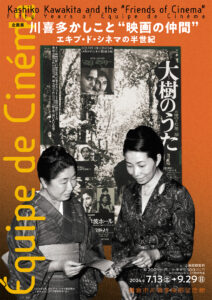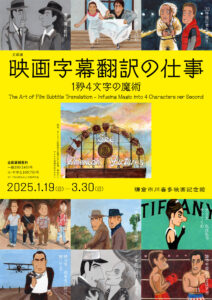The Life of Hideko Takamine:From Child Actress to “New-Style” Wife
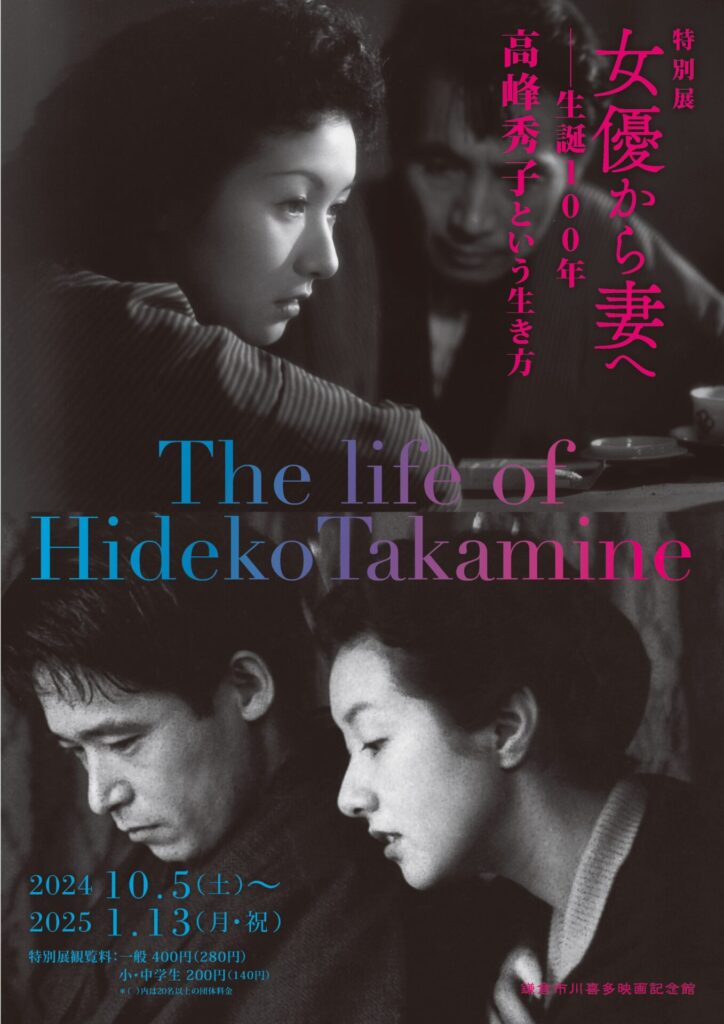
Hideko Takamine maintained throughout her life that she didn’t enjoy her work as an actress.
Unexpectedly cast as a child actress at the age of five, she went on to appear in numerous films during the transition from silent films to talkies, winning widespread adulation as a teenage star in the war period.
Her professionalism earned her great respect as an actress, but behind the glamorous veneer, she faced personal struggles, including a strained relationship with her adoptive mother and the responsibility of supporting over a dozen family members.
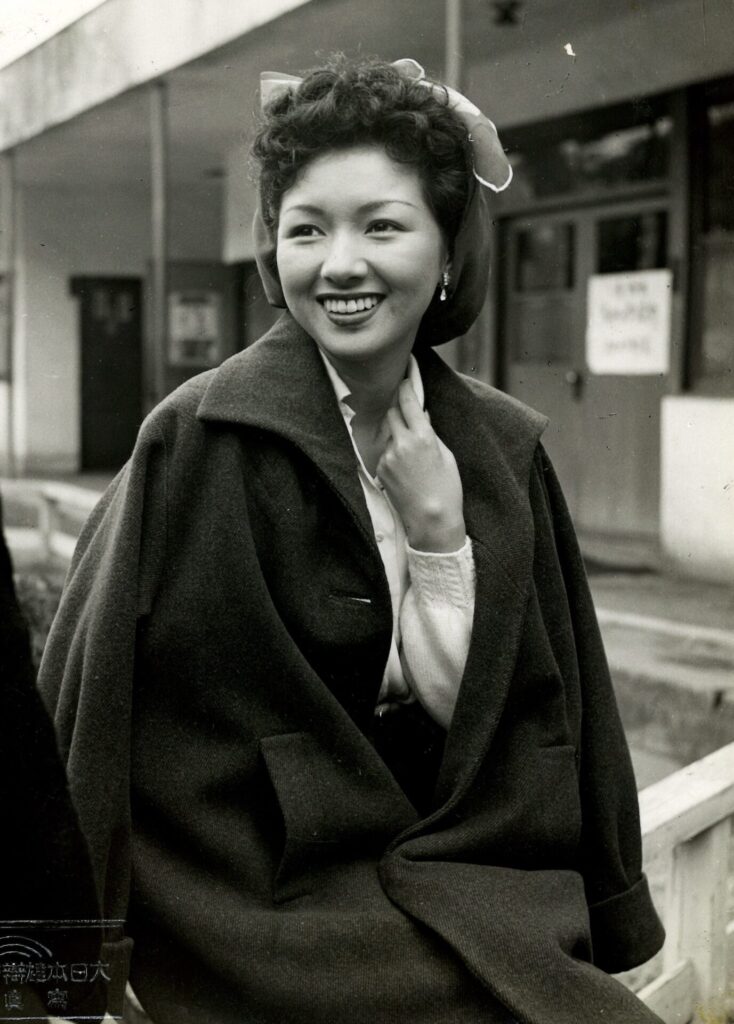
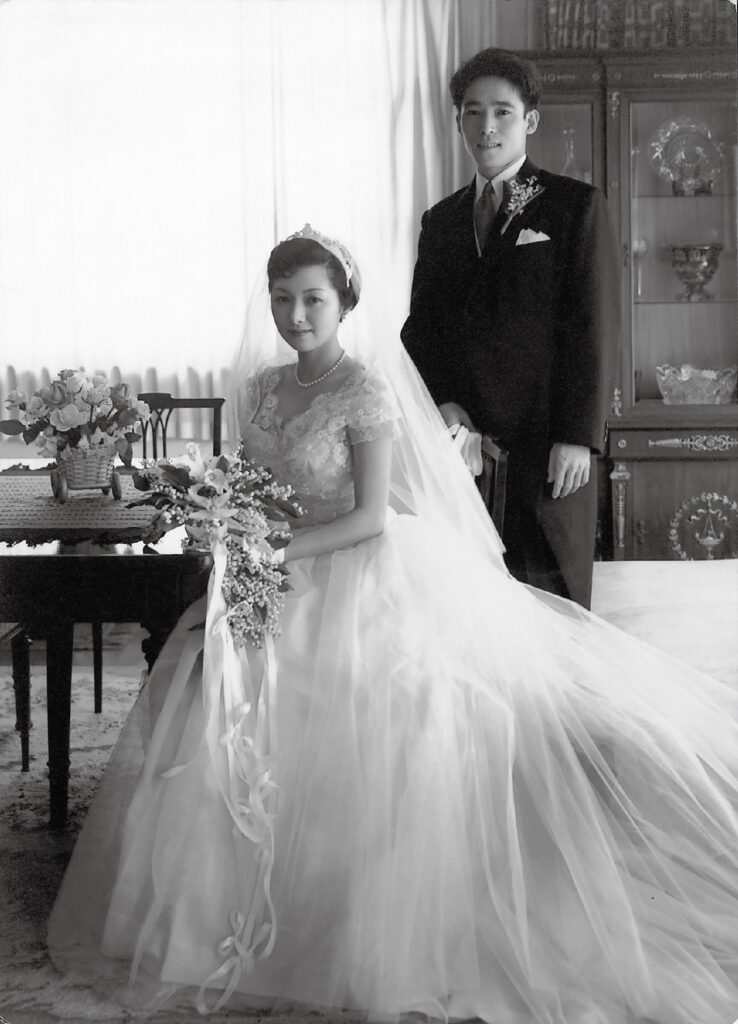
A turning point came when, after going freelance to star in Carmen Comes Home (Dir. Keisuke Kinoshita, 1951), she rediscovered herself during an extended stay in Paris. In 1955, she married Zenzo Matsuyama, then Kinoshita’ s assistant director. Though many commented on the couple’ s gap in status — Takamine was a bona fide star compared to her relatively unknown husband — the marriage gave her the freedom to finally live life on her own terms. After starring in Floating Clouds (Dir. Mikio Naruse, 1955), which she intended as her final major role, she limited herself to select parts primarily in the films of Kinoshita and Naruse, finding fulfilment both as a wife and actress while supporting her husband, who was gaining fame as a screenwriter and director, both publicly and privately.
This exhibition, held in honor of the centenary of Takamine’ s birth, reflects both on her radiant legacy in Japanese film history and the happiness she found in marriage. We are proud to present this exhibition and series of screenings and events that shed light on this most talented of actresses, from the turbulence of her early years to eventual domestic tranquility.
Hideko Takamine Notable Works
Directed by Yasujiro Ozu :The Munekata Sisters (1950)
Directed by Keisuke Kinoshita :Carmen Comes Home (1951), Twenty-four Eyes (1954), The Lighthouse (aka Times of Ioy and Sorrow, 1957), The River Fuefuki. (1960), Immortal Love (1961)
Directed by Mikio Naruse :Floating Clouds (1955), Flowing (1956), Untamed (1957), When a Woman Ascends the Stairs (1960), A Wanderer’ s Notebook (1962), Yearning (1964)
Directed by Zenzo Matsuyama:Happiness of Us Alone (1961), Mother Country (1962), Rokujo Yukiyama Tsumugi (1965)
Others :Where Chimneys Are Seen (Dir. Heinosuke Gosho, 1953), The Stakeout (Dir. Yoshitaro Nomura, 1958), The Rickshaw Man (Dir. Hiroshi Inagaki, 1958), The Wife of Seishu Hanaoka (Dir. Yasuzo Masumura, 1967), The Twilight Years (Dir. Shiro Toyoda, 1973)
Visitor’ s Voices: “What Hideko Takamine Means to Me”
In a corner of the exhibition, you'll find a space where you're invited to share your thoughts on Hideko
Takamine—whether it's your favorite films, her unique charm as an actress, or your impressions of the exhibition.
We look forward to reading your comments.

